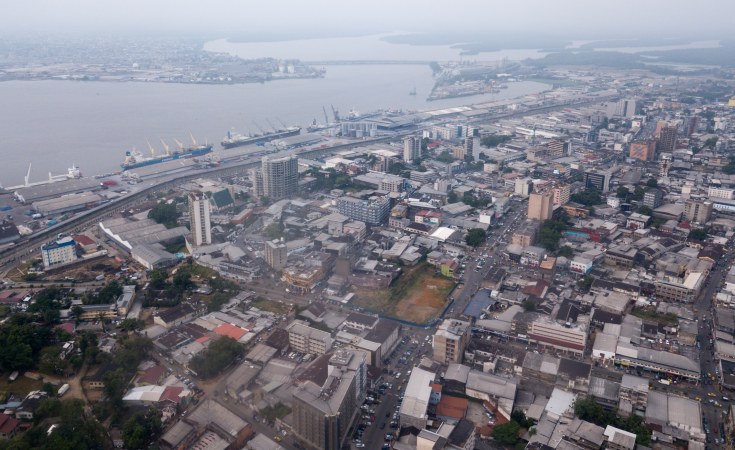Douala, Cameroon — Cameroon's President Paul Biya has ordered the demolition of poorly constructed, illegal houses in the port city of Douala, the country's largest city and economic hub. The order came after a four-story building collapsed onto a smaller one Sunday killing at least 33 people, including four children. Rescue workers are still digging through the rubble in hopes of finding survivors.
Scores of rescue workers and military troops use spades to dig through the wreckage of a collapsed structure Monday.
Military bulldozers move and dump scattered pieces of the building onto an empty area near scores of onlookers.
Lieutenant Colonel Abdel Kadrey is one of the commanders of the Fire Fighting Department of Cameroon's military. He's supervising operations for what is hoped for will be rescues and not just the recovery of bodies.
Kadrey said the building was in an advanced state of degradation before it collapsed Sunday at about 1:00 am local time. He said the collapsed building no longer constitutes a threat to its surroundings.
The apartment building, which authorities estimate housed 160 people, collapsed onto a two-story one next to it that housed another 60.
Samuel Dieudonne Ivaha Diboua, the governor of Cameroon's Littoral region, where Douala is located, said the hope of finding survivors is lessening by the hour.
"We want to tell the population that 31 people are in hospitals and the military and also gendarmes are working to make sure that there is no body remaining inside [the wreckage]," he said. "So, the military, they are still working, and we are sure that they are going to make efforts to finish the work today or tomorrow."
Diboua said the injured are being treated at Douala's Laquintinie and Dieudo hospitals.
On Monday, the government said President Biya dispatched a delegation led by Cameroon's Housing and Urban Development minister to Douala to oversee demolition of unsafe housing.
Sunday's collapse came as Douala's city council has been trying to demolish unsafe buildings in high-risk zones for floods or landslides.
The council and Cameroon's housing ministry last year reported more than 500 buildings in high-risk zones were in danger of collapse.
Authorities ordered owners to either reinforce or demolish the buildings, but Douala's city council reports fewer than 40 were repaired and none have been demolished.
Council officials say the building that collapsed early Sunday was not one of those marked for demolition.
Edward Nfor, a member of the Cameroon Civil Society Group and a building contractor, blamed what he described as a lack of respect by authorities for building safety standards.
"A city like Douala is supposed to be well planned so that each one knows that this area is good to construct or not or these are areas where we have floods or landslides," he said. "That information is not available. Normally, there are supposed to be some geotechnical surveys approved by the state before you carry out (construct) (multi-)story buildings. That is not done. Everybody is just doing what he or she wants to do and then these are the resultant effects like what just happened."
Cameroon's government has not responded to allegations that it does a poor job of policing standards in building construction.
In June, the government issued a public warning to beware of poor-quality cement and iron rods being sold in the country.


